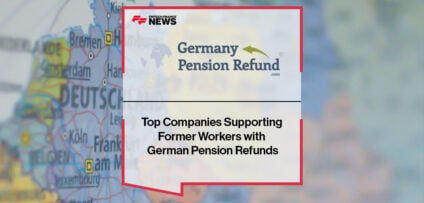Breaking News

The New Currency War
By Pierre-Antoine Dusoulier, CEO, iBanFirst
Throughout the recent economic turbulence, a new war on currencies has emerged. Since the start of the year, the Japanese yen has lost almost 25% of its value while the euro is down 15% and the pound sterling is down 27%. Given the intense devaluation of several currencies around the world, investors are nervously losing confidence in the currency market. Central and state banks have stepped in to attempt to simmer the fire. But in this highly volatile environment, there seems to be only one survivor: The greenback. Against the USD, the sterling has reached a 37-year low. Nevertheless, the new currency war is not between the battle of two currencies, but rather a battle between the currencies themselves and ongoing monetary collapse.
Heeding this economic uncertainty, the central banks of Japan and India opted for direct intervention in the foreign exchange market. In the UK, factors such as Brexit, the energy crisis, the threat of recession, and the last expensive budget presented by the English Government at the end of September had little impact on investor confidence. Looming recession and financial conservation urged central banks to raise key interest rates in order to fight inflation.
However, for the fiscal interventions of central banks to actually make an impact, it needs to have a sufficient amount of foreign exchange reserves. Wars of attrition require having enough ammunition to win. In the case of the currency war, the effectiveness of exchange rate interventions depends on foreign exchange reserves supplies. Unfortunately, the UK has gravely insufficient ammunition. Compared to Japan’s reserves which sits at 1.7 trillion dollars, the accumulated reserves of the Bank of England and the British Treasury only amount to 200 billion dollars.
In theory, sufficient foreign exchange reserves means winning the battle against currency decline. Realistically, this is hardly the case. In 1998, Japan and the US intervened through a coordinated way to support the Japanese yen. It had little effect until the bankruptcy of the highly leveraged hedge fund LTCM that the yen earned safe haven status through strengthening against the dollar.
Raising key interest rates is another coveted weapon to combat currency depreciation. The FED, the ECB, and more recently Japan have all utilised this weapon to fight against inflation. This consists of ensuring that long-term borrowing rates are close to zero so accommodative financing conditions remain a possibility. Amidst all the chaos, one thing is certain: It is only by drastically increasing key rates that central banks can stand a chance against ongoing monetary collapse.
Although raising key interest rates reduces imported inflation, this exacerbates an economic contraction felt by households and companies. The latest PMI activity indicators revealed that the Euro zone and the UK have certainly entered recession, generating a particularly risky reflex. Western governments have imposed tariffs on their allies, impeding trade in an attempt to curb inflation. Consequently, accumulated wealth collapsed and unemployment soared – leaving countries with warlike desires.
Presently, drifts of protectionism and its inevitable warlike consequences are looming. The currency war rages on.
People In This Post
Companies In This Post
- DIFC’s Dubai FinTech Summit Expands Globally with Pakistan Digital Authority Read more
- GoldenPeaks Capital Secures Largest PPA Deal in Hungary With Hankook Read more
- Volante Technologies: AI, Crypto, and Modern Banking Innovation Read more
- Payment Spayce and Sagicor Bank: Innovating Fintech for the Caribbean Market Read more
- Top Companies Supporting Former Workers with German Pension Refunds Read more
















